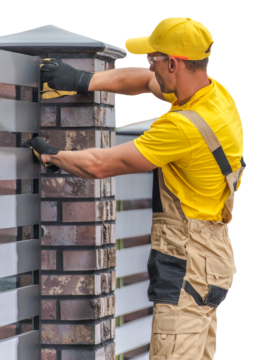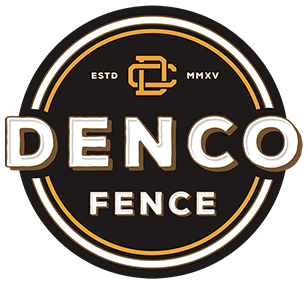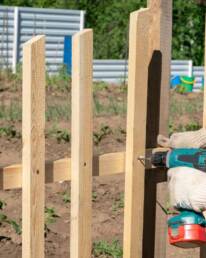Fencing plays a multifaceted role in any property. Not only does it help to define boundaries, but it also adds significant security, privacy, and curb appeal to your home or business. Whether you’re looking to add a protective layer around your home, enhance your outdoor space, or increase the overall value of your property, fences serve as a practical yet stylish solution.
For residents of Denver, selecting the right fence is essential due to the unique environment and climate of the area. Denver’s distinct weather conditions—including hot summers, cold winters, and heavy snowfall—require a fence that can withstand extreme temperatures and varying weather patterns. Additionally, the city’s mix of suburban homes, urban settings, and expansive commercial properties means that a one-size-fits-all approach to fencing will not suffice. It’s important to consider how your fence will interact with the local environment, such as the likelihood of high winds or moisture from snow.
Furthermore, Denver is home to a diverse population with varying needs. Homeowners may prioritize privacy and aesthetic appeal, while business owners may require high-security fences to protect their property. With a range of fence types and styles to choose from, this guide aims to walk you through the process of selecting the perfect fence for your needs, offering tips on design, functionality, and cost.
Understanding Fence Types: Which One Is Right for You?
Choosing the right fence type for your property is crucial because the type of fence you install will impact both its functionality and visual appeal. The fence you select should align with your needs—whether it’s for privacy, security, or decoration—and also complement your property’s style.
When selecting a fence, consider factors such as the purpose of the fence (privacy, security, aesthetics), the climate of Denver, and the maintenance involved. Here’s an overview of the most common fence types:
Wood Fencing
Wood fencing has long been the preferred choice for homeowners seeking a natural, warm aesthetic for their property. Wood offers both privacy and security and can be customized to fit various styles, including traditional picket fences, modern horizontal slats, or rustic post-and-rail designs.
Advantages
- Customizable: Wood fences can be painted or stained in various colors to match your property’s exterior, allowing you to achieve the exact look you want.
- Privacy: Solid wood fences, such as board-on-board or stockade fences, provide a high level of privacy by blocking the view into your yard.
- Versatility: Wood can be used for both traditional and contemporary designs, making it a versatile option for any property style.
Disadvantages
- Maintenance: Wood fences require regular maintenance, including staining, sealing, and treating for pests to ensure their longevity and prevent rot.
- Pest Damage: Wood is susceptible to termite infestations and rot, especially in areas with high humidity or direct exposure to rain and snow (something to consider in Denver’s varied weather).
Wood is a great choice for privacy, but it will require more upkeep compared to other, low-maintenance fencing materials like vinyl or metal.
Vinyl Fencing
Vinyl fencing is a modern, low-maintenance option that offers many of the same privacy and security benefits as wood, without the hassle of regular upkeep. Vinyl fences are a popular choice for homeowners who want a long-lasting, attractive fence with minimal maintenance.
Advantages
- Low Maintenance: Unlike wood, vinyl does not require painting, staining, or sealing. It’s resistant to moisture, pests, and rot, making it a great option for Denver’s varying weather conditions.
- Durability: Vinyl fences are UV resistant, so they won’t fade in the harsh Denver sun. They also stand up well to snow and rain, making them a great long-term investment.
- Privacy: Vinyl fences are often available in solid panel designs that provide excellent privacy for your property.
Disadvantages
- Initial Cost: Vinyl fences typically have a higher upfront cost than wood fences, which can make them less budget-friendly for some homeowners.
- Limited Customization: While vinyl comes in a variety of styles and colors, it doesn’t offer the same aesthetic flexibility as wood, which can be carved, shaped, or painted to match specific design preferences.
Vinyl fences are an excellent option for low-maintenance privacy and security fences, especially for busy homeowners in Denver who want an easy-to-care-for solution.
Chain Link Fencing
Chain link fencing is one of the most economical and practical options available. It is often used for larger properties, commercial areas, or as a boundary marker where privacy isn’t a primary concern. It’s a practical solution when security and low installation costs are the priority.
Advantages
- Affordable: Chain link fences are cost-effective, making them a good choice for larger properties or when you’re on a budget.
- Durability: These fences are strong, weather-resistant, and can last many years with minimal maintenance. The mesh construction is sturdy and able to withstand Denver’s wind and snow.
- Security: Chain link fences act as a deterrent for intruders and can be further fortified with barbed wire or privacy slats.
Disadvantages
- Privacy: Chain link fences don’t offer the privacy that wood or vinyl fences provide, although you can add privacy slats to reduce visibility.
- Aesthetic Appeal: While practical, chain link fences may not be the most visually appealing option, especially in residential areas where aesthetics are a concern.
Chain link fences are best for boundary definitions and security on large or industrial properties, where privacy is not as important.
Wrought Iron Fencing
Wrought iron fences are well-known for their strength and elegance, making them a classic choice for homeowners and businesses that want a blend of security and aesthetic beauty. These fences offer a sophisticated look, while also providing solid protection.
Advantages
- Durability: Wrought iron is incredibly strong and can withstand harsh weather conditions, including Denver’s cold winters.
- Aesthetic Appeal: Wrought iron fences are ornate, adding elegance and charm to your property. They can be customized to fit a variety of styles and complement your landscaping.
- Security: Wrought iron fences are hard to break or climb, providing a high level of security for your home or business.
Disadvantages
- Cost: Wrought iron fences are typically more expensive than other materials like wood or chain link.
- Maintenance: Although wrought iron is durable, it can rust if not treated properly. Regular maintenance (such as painting) is necessary to prevent corrosion.
Wrought iron is ideal for homeowners who want a high-security fence that doesn’t sacrifice aesthetic beauty.
Aluminum Fencing
Aluminum fences are often used as a lighter, more affordable alternative to wrought iron. They still provide a similar look and security but at a lower price point.
Advantages
- Lightweight and Rust-Resistant: Aluminum is resistant to rust, making it a perfect option for Denver’s changing weather.
- Low Maintenance: Like vinyl, aluminum requires very little upkeep.
- Affordable: Aluminum is less expensive than wrought iron, making it a good option for those on a budget.
Disadvantages
- Not as Strong as Wrought Iron: Aluminum fences are strong but not as durable as wrought iron, especially for high-security areas.
- Limited Customization: Aluminum fences come in fewer styles than wood or vinyl, which might not be ideal for homeowners seeking a highly customized look.
Aluminum is a great option for those looking for durability, security, and aesthetic appeal, but it may not be the best for high-security needs.
Steel Fencing
Steel fences are heavy-duty and designed for maximum security. These fences are typically used for commercial properties, high-end estates, or areas where high levels of protection are needed.
Advantages
- Maximum Security: Steel fences are incredibly durable and difficult to penetrate, making them an excellent choice for high-security areas.
- Rust and Weather Resistance: Steel is resistant to rust and weather damage, making it perfect for harsh climates like Denver’s.
- Longevity: A steel fence can last for decades with minimal maintenance.
Disadvantages
- Cost: Steel fences can be expensive to install, especially when compared to wood, vinyl, or chain link.
- Aesthetic Considerations: Steel fences may not blend as well with residential areas and may appear too industrial or imposing.
Steel is best suited for high-security commercial properties or residential estates where security is a top priority.
Exploring Fence Styles: How to Choose the Best Look for Your Property
Once you’ve chosen a fence type, the next step is selecting the fence style that complements your property’s design, purpose, and aesthetic preferences. The style of your fence will not only enhance the look of your property but also affect its functionality in terms of privacy, security, and durability.
Here are some of the most common fence styles and their benefits:
Privacy Fencing
Privacy fences are designed to shield your property from the outside world. Typically, these fences are taller (usually between 6 to 8 feet) and feature solid panels with no gaps between the boards. The main goal of a privacy fence is to ensure that no one can see into your yard, which makes them ideal for homes in urban areas or subdivisions where homes are closely spaced.
- Best for: Homeowners who want to protect their outdoor space from prying eyes, reduce noise, and create a secluded retreat.
- Design options: Common materials for privacy fences include wood, vinyl, and composite. These materials allow for a variety of finishes, such as natural wood grain, sleek modern designs, or maintenance-free vinyl panels.
Additional Considerations
Solid panel privacy fences can be prone to wind damage in areas with strong winds. Adding a slight gap or opting for shadowbox styles can help reduce wind resistance.
Picket Fencing
Picket fences are a timeless choice for many homeowners, especially those with a classic, charming property. They typically feature evenly spaced vertical slats with pointed tops. Picket fences are usually around 3 to 4 feet tall, which means they are not designed to provide privacy but serve more as a decorative boundary.
- Best for: Creating a welcoming atmosphere and adding charm to gardens or front yards. Picket fences are often used in neighborhoods where fences are required but where privacy is not a concern.
- Design options: Picket fences can be built using wood, vinyl, or composite materials. They are customizable in terms of slat width, spacing, and shape.
Additional Considerations
Picket fences are generally not suitable for privacy, so they are ideal for decorative purposes. You can use climbing plants or vines to enhance privacy if needed.
Shadowbox Fencing
A shadowbox fence combines both privacy and aesthetic appeal. This style features alternating vertical slats on both sides of the fence, creating a “see-through” effect. It allows for air flow and light while still maintaining some privacy because the slats overlap.
- Best for: Homeowners looking for a compromise between privacy and openness. This style is great for creating a decorative look while still ensuring that neighbors can’t easily look into your yard.
- Design options: This style is typically used with wood, vinyl, or composite materials.
Additional Considerations
The design can work well in open spaces, such as backyards or patios. However, the overlapping slats may allow some visibility through the fence, especially in certain lighting.
Ranch Fencing (Post-and-Rail)
Ranch-style fencing, also known as post-and-rail fencing, is a rustic, open-style fence commonly used for agricultural properties, horse ranches, or farm properties. This style usually features horizontal rails with open spaces between them.
- Best for: Property owners with large open spaces who want to define property lines, contain livestock, or simply add a rustic, country feel to their land. It’s not suitable for privacy but works great for boundary definition.
- Design options: Wooden rails are the most common material, but vinyl and metal options are also available.
Additional Considerations
Ranch fences do not offer privacy but are highly effective for containment and boundary marking.
Lattice Fencing
Lattice fencing features a crisscrossed pattern of wood, vinyl, or metal slats. This design is often used at the top of a fence to add a decorative touch while still providing privacy below. Lattice fences are commonly used for gardens, trellises, and privacy screen additions.
- Best for: Enhancing the visual appeal of a garden or backyard. Lattice fences are also great for adding extra height to an existing fence without blocking out too much light and air.
- Design options: Lattice can be installed at the top of a fence or as the main design element. It works well in combination with other fence types, such as wood or vinyl.
Additional Considerations
Lattice fences are typically not as secure or strong as solid privacy fences, but they can be used for decorative and aesthetic purposes.
How to Determine Fence Installation Cost
Understanding the cost of fence installation is crucial when planning a new fence for your property. The price can vary depending on several factors, including the type of fence, materials, labor costs, and the size of the project.
Here are the primary factors that will influence the cost of fence installation:
Factors Affecting Fence Installation Cost
Fence Type and Material
The type of fence you choose has the most significant impact on your budget. For example, wood fences tend to be less expensive than wrought iron or steel fences. Similarly, vinyl fencing offers low maintenance but usually comes at a higher upfront cost.
Property Size
The larger your property, the more material and labor will be needed to install the fence. Fence costs are typically calculated per linear foot, so larger projects naturally cost more.
Labor Costs
Labor costs can vary depending on the complexity of the installation and the contractor’s rates. In Denver, the cost of labor may fluctuate based on local demand, the time of year, and whether the fence installation requires specialized tools or techniques.
Fence Height and Design
Taller fences or those with custom designs (such as decorative features or gates) will generally cost more than a basic fence installation. Privacy fences and shadowbox fences typically cost more than picket or ranch-style fences due to their solid construction.
Additional Features
Adding features like gates, electricity, lighting, or security cameras can significantly increase the overall installation cost. These additions require additional materials and labor, which will be factored into the price.
Ways to Save on Fence Installation
Choose Affordable Materials
Opting for more affordable materials such as wood or chain link can save you money on installation costs. Vinyl fences are also relatively low-maintenance and could provide savings in the long run.
Do-It-Yourself (DIY)
If you’re comfortable with basic tools and techniques, a DIY fence installation can save you significant costs. However, consider the complexity of the job before deciding to go the DIY route, as improper installation could lead to higher repair costs later.
Compare Multiple Quotes
Always get quotes from multiple fence installation companies to ensure you’re getting a fair price. Comparing quotes from local contractors in Denver can give you a better sense of the market rate.
Choosing the Right Fence for Your Property in Denver
Fencing is an essential feature of your property that enhances both security and aesthetic appeal. By choosing the right fence type and style based on your needs—whether it’s for privacy, security, or decorative purposes—you can transform your outdoor space into a secure, beautiful area.
The cost of fence installation can vary, but understanding the factors involved will help you make the best decision for your property’s needs and budget. Whether you’re building a new home, renovating an existing one, or securing your business, the right fence will increase both the value and functionality of your property.
If you’re ready to take the next step in installing a fence, contact a reputable fence contractor in Denver today. Our team can provide expert advice, assist with selecting the best materials, and ensure the installation process is completed efficiently and affordably.
Ready to enhance your property with the perfect fence? Contact us today for a free consultation on fence installation costs, types of fences, and how we can help you achieve your security and aesthetic goals with the perfect fence for your Denver property.

Need an expert opinion? Talk to our experts today!
When you talk to our experts at Denco Fence Company, we’ll help you compare fence styles, share design ideas, and answer any questions along the way. If you’re looking to build or repair a fence that you and your neighbors are going to love, get a free estimate and let us help bring your project to life.

